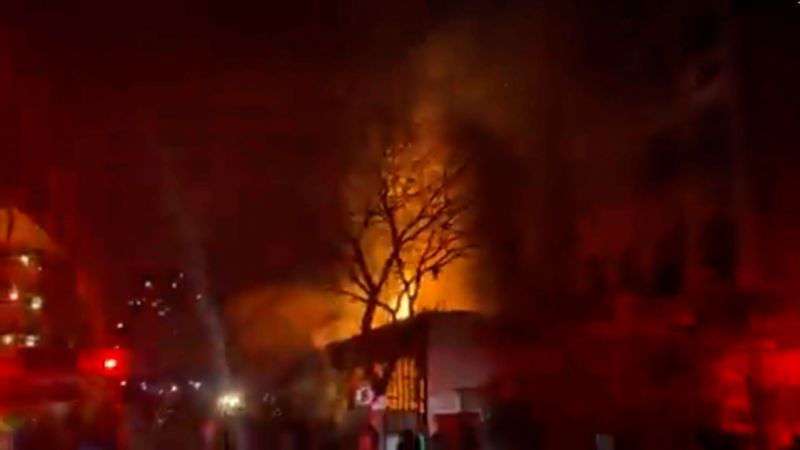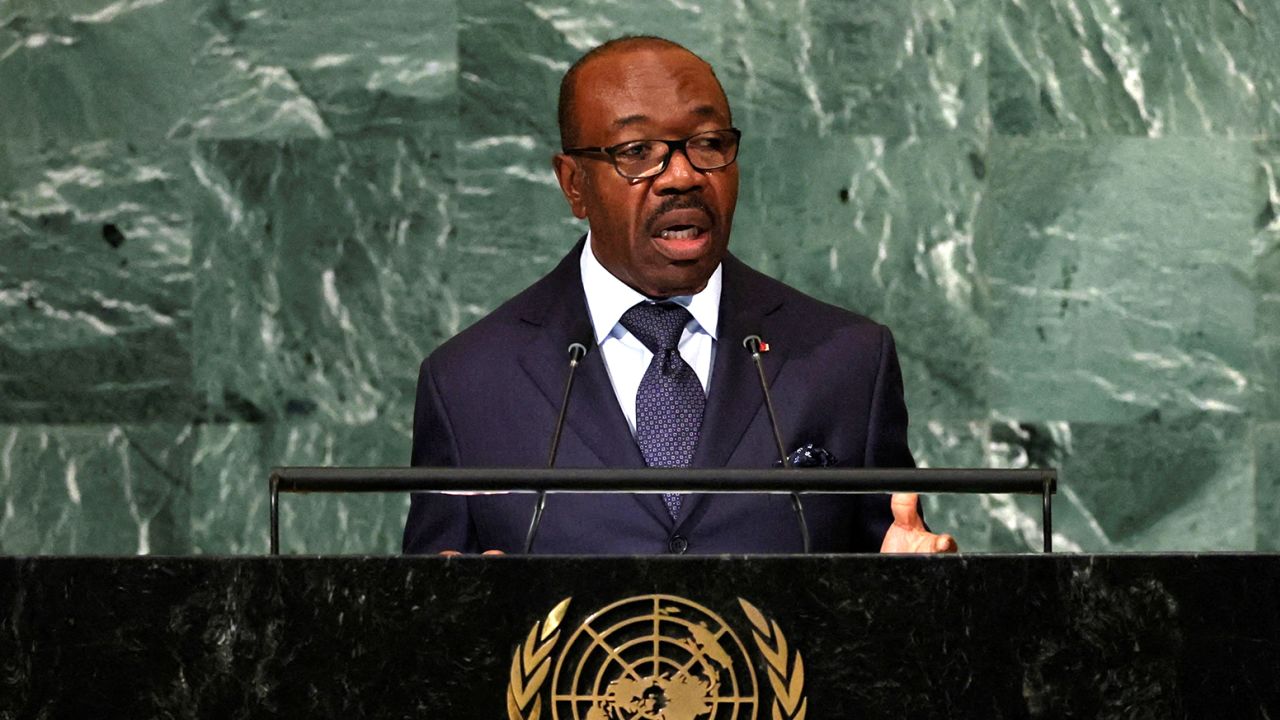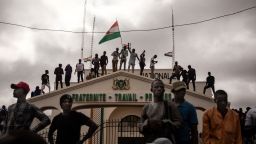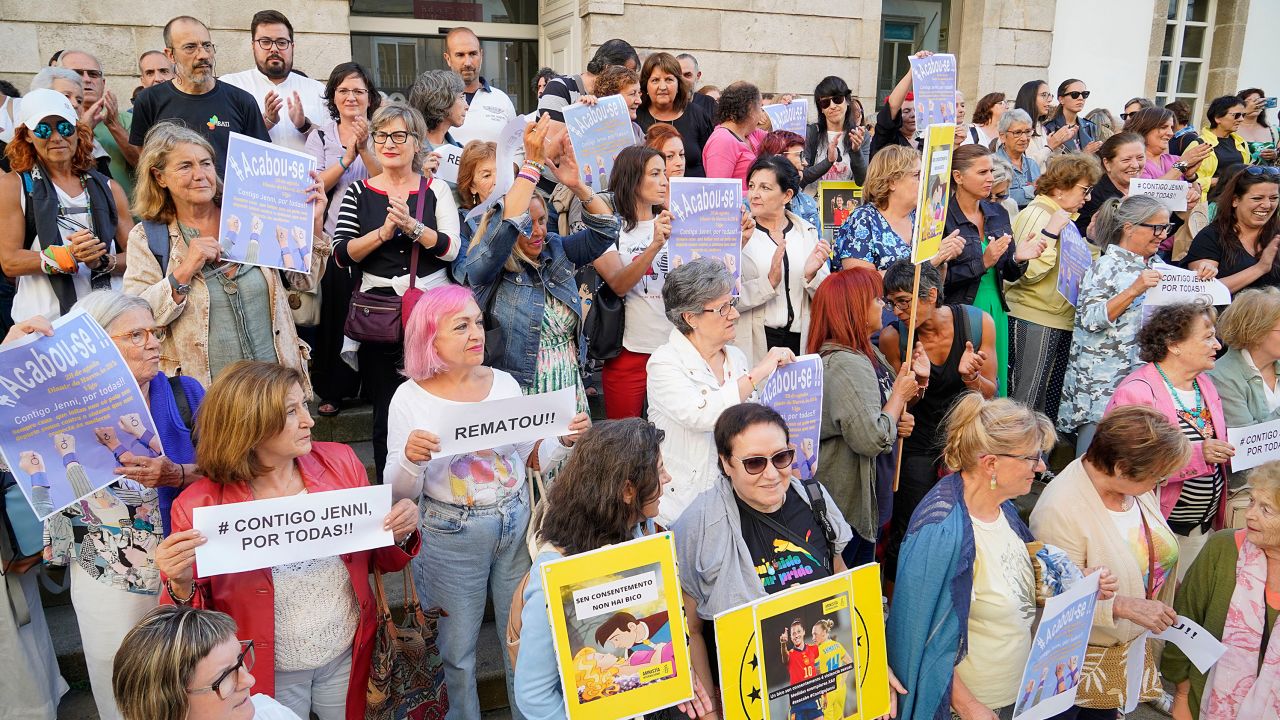CNN —
Military officers on Wednesday declared they were seizing power in Gabon, shortly after President Ali Bongo was deemed the victor of a contested election, extending his family’s half-century rule over the Central African nation.
The officers, claiming to represent “defense and security forces” in the country, made the announcement in a televised address on news channel Gabon24. It was viewed by CNN on X, formerly known as Twitter.
“On behalf of the Gabonese people and guarantor of the protection of institutions, CTRI [the Committee for the Transition and Restoration of Institutions] has decided to defend peace by putting an end to the regime in place,” a military officer said on the broadcast.
CNN cannot independently confirm the video, and has not yet been able to reach Gabon’ government for comment.
In the broadcast, the military officer said the election results would be voided and the country’s borders would be shut.
“All the institutions of the republic are dissolved: in particular the government, the Senate, the National Assembly, the Constitutional Court, Economic and Social and Environmental Council, and the Elections Council of Gabon,” the officer said.
“We call on the population of Gabon, the communities of neighboring countries living in Gabon, as well as the Gabonese diaspora, to remain calm.”
Loud sounds of gunfire could be heard in the capital Libreville, a Reuters reporter said, following the television appearance.
People in Gabon were seen dancing and celebrating on the streets of its capital, according to videos shared with CNN and posted on social media.
In one video obtained by CNN, people can be seen shouting “liberated!” and waving the Gabon flag in the Nzeng Ayong district of the capital, alongside military vehicles.
Five countries in western and central Africa have already been seized by military juntas in the past three years, five of them former French colonies. Coups in Mali, Guinea, Burkina Faso, Chad and Niger have undermined democratic progress in recent years.
Most recently, Niger’s military junta seized control of the West African country in late July, prompting the African Union to suspend Niger’s membership in the group of 55 member states. Earlier this month, Niger’s military ruler proposed a return to democracy within three years, saying the principles of the transition would be decided within the next 30 days.
Earlier Wednesday, Gabon’s election body said Bongo had won the presidential election with 64.27% of the vote, Reuters reported, after a delay-plagued general election that the opposition denounced as fraudulent.
Bongo’s main challenger, Albert Ondo Ossa, came in second place with 30.77%, said the election body. Bongo’s team had rejected Ondo Ossa’s allegations of electoral irregularities.
Ali Bongo, 64, took over from his father, Omar Bongo, who died of cardiac arrest while receiving treatment for intestinal cancer in a Spanish clinic in 2009, following nearly 42 years in office.
The elder Bongo came into power in 1967, seven years after the country’s independence from France.
He ruled over the small nation with an iron fist, imposing a one-party system for years and only allowing multi-party rule in 1991, though his party retained its grip on government.
In this week’s election Ali Bongo had 18 challengers, six of whom had backed Ondo Ossa, a former minister and university professor, in an effort to narrow the race. Many in the opposition were pushing for change in the oil-rich but poverty-stricken nation of 2.3 million.
Tensions were running high amid fears of unrest after Saturday’s vote, with international observers complaining of a lack of transparency.
Ahead of the election, the non-profit Reporters Without Borders condemned the Gabonese government for obstructing foreign press coverage of the event.
The EU’s foreign policy chief Josep Borrell said on Wednesday that “if (the situation in Gabon) is confirmed (that) it’s another military coup,” it would “increase instability in the whole region.”
“It’s an issue that will be put on table and we will discuss it,” Borrell told reporters ahead of an EU ministerial meeting on defense held in Toledo, Spain.
“The whole area starting with Central African Republic, then Mali, then Burkina Faso, now Niger, maybe Gabon, it’s a very difficult situation,” Borrell said. “Defense ministers and foreign ministers have to have a deep thought on what is going on there. And how we can improve policy with these countries.”
French Prime Minister Elisabeth Borne said her country was following the situation in Gabon “very closely.”
This is far from the first time Gabon has seen a power struggle or unrest over Bongo’s rule, which has frequently been disputed by critics.
In 2016, the parliament building was torched when violent street protests erupted against Bongo’s contested re-election for his second term. The government shut down internet access for several days at the time.
A coup attempt came in 2019, when a group of soldiers and military officers stormed the state radio and television headquarters, took staff hostage, and declared they had taken control of the nation.
They cited their dissatisfaction with Bongo as president, vowing to “restore democracy” in the country – before Gabonese defense and security forces moved in to end the takeover and rescue the hostages. Two soldiers were killed and eight military officers arrested as a result.
Adblock test (Why?)
World - Latest - Google News
August 30, 2023 at 03:02PM
https://ift.tt/C0vqUIo
Gabon military officers claim to have seized power after election - CNN
World - Latest - Google News
https://ift.tt/2P9rMTk










/cloudfront-us-east-2.images.arcpublishing.com/reuters/XLSMZ5IDRFIUNEMEWEGKN5GMQM.jpg)
